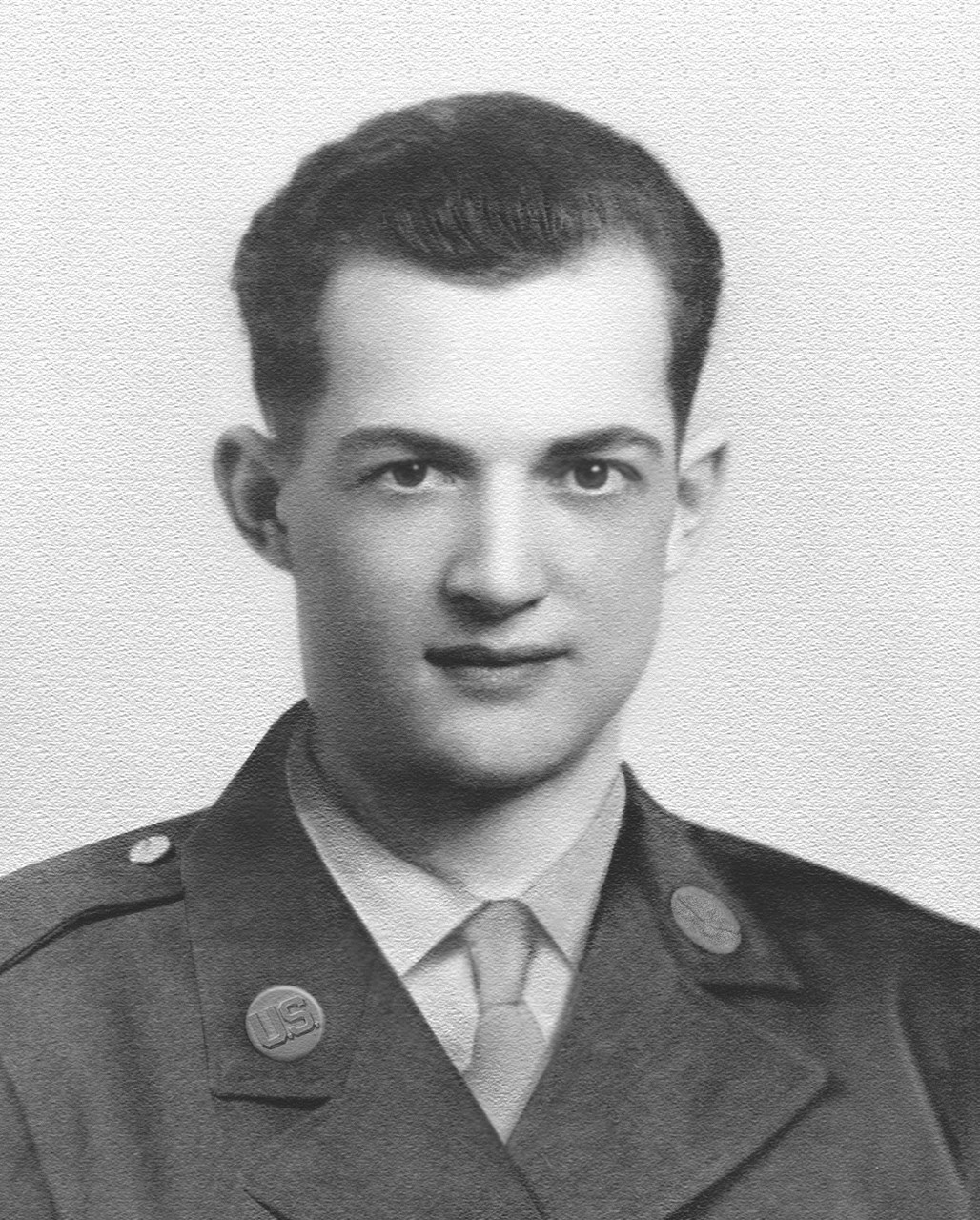Joe Mann
This monument is a tribute to the American paratrooper Joe Eugene Mann and all others who fought for the liberation of Best. Joe Mann was an American soldier in the Second World War. He served with the 101st US Army Airborne Division during Operation Market-Garden and was killed in action at Best around the bridge over the Wilhelmina Canal on 19 September 1944 by sacrificing himself to save his fellow soldiers. He used his back to absorb the blast of a grenade and thereby saved the lives of his comrades. For this act, he was posthumously awarded the highest US military honour, the Medal of Honor. He is buried at Greenwood Memorial Terrace in Spokane, Washington State, USA.
The story of Joe E. Mann only became known in the region later, through a publication by Cees Wittebrood in the 'Bata Koerier' of 22 October 1954, which led to the construction of the Joe Mann Theatre and the Joe Mann War Monument.
Reliefs on the monument
The reliefs on the monument depict Joe Mann's heroic deed. Sergeant Bertras is depicted on the far left at the front. He threw a hand grenade from the shelter in which Joe Mann was lying with a number of wounded. On the far right is Private Laino, who was seriously wounded in the face when a shell exploded on the barrel of his machine gun. The main motif on the front of the monument depicts Lieutenant Edward Wierszbowski bending over the dying Joe Mann. The images on the front continue, as it were, into the relief on the right of the monument, which shows the wounded Joe Mann in his shelter. The Great Seal of the United States of America (eagle with coat of arms) is depicted on this part of the monument. The small relief on the back depicts St. Odulphus, who appears in the coat of arms of the municipality of Best. Private L. Koller, who was killed by a bullet while sleeping, is depicted on the left. The eagle that appears in the unit crest of the 101st Airborne Division is also depicted there.
The base of the monument bears the same text as the 'Medal of Honor': "His extraordinary kindness and his brilliant conduct were a perpetual inspiration to his comrades, for whom he gave his life".
The image was designed by Nijmegen artist Ad Berntsen and unveiled by Joe Mann's parents on 17 September 1956 in the presence of Mayor Notermans, the military attaché of the American Embassy in The Hague and 13 Americans of the 101st Airborne Division and many others.
